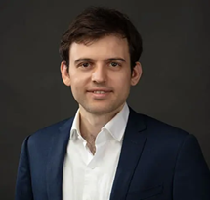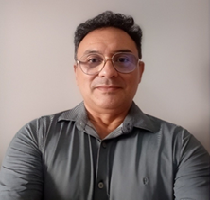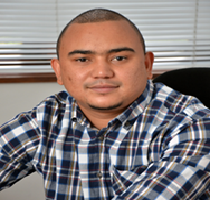
Title : Chinese Herbal Medicine for Anxiety Disorders and Obsessive-Compulsive Disorder: A Systematic Review with Meta-Analysis
Name : Yoann Birling
University : Western Sydney University
Country : Australia
Download AbstractAbstract
The objective of this systematic review is to assess the effectiveness and safety of Chinese Herbal Medicine (CHM) for anxiety disorders and obsessive-compulsive disorder (OCD). EMBase, PubMed, CINAHL, CNKI, Wanfang, CQVIP, clinicaltrials.gov and Chinese Clinical Trial Registry were searched from database inception to January 2025 using search terms defining “anxiety/OCD”, “Chinese herbal medicine” and “randomized controlled trial”. From a total of 9,805 reports screened, 92 randomised-controlled trials in which CHM was tested against anxiolytics in the treatment of anxiety disorders and OCD were included in the review. The sample size, mean and standard deviation at end-of-intervention (for continuous outcomes) and number of participants who experienced adverse events were collected for each arm. Compared to anxiolytic medication, CHM was more effective in reducing anxiety (Hamilton Anxiety Rating Scale Mean Difference = -1.50 points, 95% CI -2.21 to -0.78, p < 0.001) and produced fewer adverse events (Incidence Rate Ratio = 0.33, 95% CI 0.24 to 0.45, p < 0.001) in participants with generalized anxiety disorder. These results are supported by studies with a low risk of bias. No study with a low risk of bias tested CHM for panic disorders and OCD. This systematic review indicates a favourable risk/benefit profile of CHM compared with anxiolytic medication for GAD, and therefore CHM could be considered as an alternative to anxiolytics. Studies with a low risk of bias are required to assess the effectiveness of CHM for panic disorders, phobic disorders and OCD.
Biography
Dr. Yoann Birling is a Chinese medicine practitioner, lecturer, and researcher with a strong commitment to mental health and integrative medicine. Trained at the top Chinese medicine university in the world, he brings extensive clinical and academic experience, having contributed to more than 30 clinical studies and authored over 25 academic publications. Dr. Birling is a leading advocate for a holistic, evidence-informed approach to mental health—one that moves beyond one-size-fits-all models and embraces the full range of effective therapeutic options. His work focuses on improving community mental health outcomes while optimizing the use of resources through rigorous, high-quality research.

Title : Integrative Medicine for Modern Health: Bridging Eastern Wisdom and Western Science for Longevity and Preventive Well-Being
Name : Dr. Cesar Daoud
University : Founder of Bioenergy
Country : Cyprus
Download AbstractAbstract
As chronic diseases and stress-related conditions rise globally, the need for a preventive, patient-centred approach to health has never been more urgent. Integrative Medicine offers an effective model—uniting the precision of Western science with the depth and balance of Eastern healing traditions. In this session, Dr Cesar Daoud explores how these complementary systems can work together to restore harmony, strengthen resilience, and support longevity. Drawing on more than two decades of clinical experience, he demonstrates how ancient diagnostic principles and modern evidence-based practices can merge to address the physical, emotional, and energetic dimensions of well-being. Participants will gain practical insights into how Integrative Medicine can be applied in daily life to reduce inflammation, balance hormones, and optimise vitality—helping individuals not only treat illness but prevent it. This talk invites a redefinition of modern health—one that empowers individuals to take charge of their wellness journey through awareness, balance, and sustainable vitality.
Biography
Dr. Cesar Daoud, Doctor of Acupuncture & Traditional Chinese Medicine, Integrative Medicine, and Health & Longevity Expert, is the founder of Bioenergy, established in 2008. With over 21 years of international experience, he has helped thousands—from children to heads of state—restore balance, manage chronic conditions, and cultivate vitality through a unique blend of Eastern and Western medicine. Dr. Daoud received his academic and clinical training in Lebanon, France, and China, and pursued advanced studies in the Netherlands and the UK. His multidisciplinary background includes Acupuncture, Traditional Chinese Medicine, Physical Therapy, Posturology, Osteopathy, Qigong, Biopuncture, and Vitamin Therapy. Now based in Cyprus, Dr. Daoud integrates ancient healing wisdom with modern science to promote energy, longevity, and a pain-free life. Dr. Daoud is renowned for his expertise in chronic pain, women’s health, emotional balance, and hormonal and nervous system optimization, as well as for his guidance in stress management and resilience. A passionate Health & Longevity Lecturer, he inspires audiences to embrace an integrative, preventive approach—bridging tradition and innovation for lasting well-being.

Title : Representations of Official and Alternative Healing Practices in Relation to the Morbidities of the Tenetehara Tembé
Name : José Augusto Carvalho de Araújo
University : State University of Pará, Belém
Country : Brazil
Download AbstractAbstract
Background: Indigenous health has long been marginalised within biomedical systems, despite the persistence of traditional practices that address both physical and spiritual well-being. Among the Tenetehara-Tembé people of the Alto Rio Guamá Indigenous Land (TIARG), located in northeastern Pará (Eastern Amazonia), traditional healing practices continue to play a central role in community resilience, particularly during times of crisis such as the COVID-19 pandemic.
Objectives: This lecture seeks to analyse how the Tenetehara-Tembé conceptualise and practice healing in relation to morbidity, with a particular focus on the interplay between official medical systems and alternative Indigenous practices. A decolonial perspective is adopted to highlight Indigenous epistemologies of prevention and care.
Methods: Ethnographic engagement was carried out in the Zawara Uhu village, with attention to the roles of community leaders, midwives, and shamans in health-related practices. The study draws on lived experiences and narratives shared by the Tembé during and beyond the COVID-19 pandemic, situating these within broader discussions on Indigenous health and environmental transformations.
Results: Findings underscore that pandemics, such as COVID-19, reflect the consequences of negligent modernity and its impacts on ecosystems. The Tembé’s practices illustrate a holistic understanding of health—encompassing body and soul—and reveal alternative frameworks for disease prevention and healing. These practices are not merely cultural survivals but constitute adaptive strategies of resilience and citizenship in the face of ongoing social and environmental challenges.
Conclusion: The Tembé’s healing practices highlight the critical importance of Indigenous knowledge in confronting morbidities that arise both from modern illnesses and from the ecological crises of the civilizing process. By integrating traditional and alternative approaches to care, the Tembé demonstrate pathways toward more inclusive and sustainable health systems.
Keywords: Disease; Tembé; Morbidity; Healing Practices
Biography
José Augusto Carvalho de Araújo holds a PhD in Sociology from the Federal University of São Carlos (UFSCar-SP), where he also completed his postdoctoral studies. He earned a Master’s degree in Sociology from the Federal University of Paraíba (UFPB), a specialization in Political Science from the Federal University of Pará (UFPA/IUPERJ), and a Bachelor’s degree in Social Sciences from the University of the Amazon. Since 1993, he has served as a professor at the State University of Pará (UEPa), where he is currently Adjunct Professor with Full-Time and Exclusive Dedication (TIDE) and a permanent faculty member of the Graduate Program (stricto sensu) in Environmental Sciences. With 32 years of experience in higher education, his research and teaching focus on Sociology and Anthropology, with an emphasis on health and the environment.

Title : Blood, Rituals and Power: Exploring the Beliefs and Use of Traditional African Medicine Within Gang Culture in the Free State Province, South Africa
Name : Ashwill Ramon Phillips
University : University of the Free State
Country : South Africa
Download AbstractAbstract
The Free State province in South Africa has become an epicenter for a novel form of violence wherein criminal youth gangs incorporate elements of African witchcraft and esoteric belief ideology into their gang practices. A vital component of these practices is the use of traditional African medicine or ‘muti’ which is comprised of plants, herbs and in extreme cases, human organs and blood, and is utilized to further coercive, ritualistic and violent purposes within gangs. Despite growing reports of muti-related rituals including organ harvesting, the consumption of human blood, and the use of paraphernalia believed to enhance invincibility, official crime statistics and empirical literature remain limited. Moreover, no studies in the region have been conducted directly exploring gang members’ perspectives and lived realities regarding how muti is conceptualized and used within the context of the gang. Grounded in subcultural and cultural transmission theory, this study draws on qualitative data to examine the symbolic, functional and ideological roles of muti in youth gangs in the Free State. Data were collected through semi-structured interviews with 23 active gang members, 16 non-gang-affiliated offenders and 18 criminal justice professionals, and analysed using reflexive thematic analysis. The findings revealed that muti is not merely a symbolic tool but is embedded in gang initiation rites, hierarchy, identity, ideology and violence. Gang members believed muti to be a means of acquiring supernatural protection and enhance spiritual power, instilling fear, and affirming loyalty to the gang. The manipulation of muti for criminal gain represents a distinct departure from conventional gang norms and signals a broader spiritualisation of gang identity in the province, while simultaneously perpetuating illegal organ harvesting and trade within the region. This study offers a unique contribution to gang scholarship by documenting how indigenous belief systems are appropriated and weaponised in youth criminal subcultures. Moreover, the study provides critical insights for the development of culturally informed intervention strategies, particularly in contexts where traditional spirituality intersects with organised violence.
Keywords: occult-gang, youth gang, typology, witchcraft, devil worship, ritual, muti , demon.
Biography
Dr Ashwill Ramon Phillips is a Lecturer in the Department of Criminology at the University of the Free State, South Africa. He holds a PhD in Criminology and specializes in youth deviance, gang subcultures, and criminogenic risk trajectories. His research focuses on the socio-cultural dynamics of youth gangs, including the intersection of gang identity with occult practices and symbolic violence. Dr Phillips has published and presented extensively on pathways to youth misconduct, resilience, and the formation of deviant identities. His work is rooted in qualitative and reflexive methodologies, and he is committed to advancing criminological knowledge that informs both theory and practice. Dr Phillips is also actively involved in curriculum development, postgraduate supervision, and community engagement initiatives with the Department of Correctional Services.
